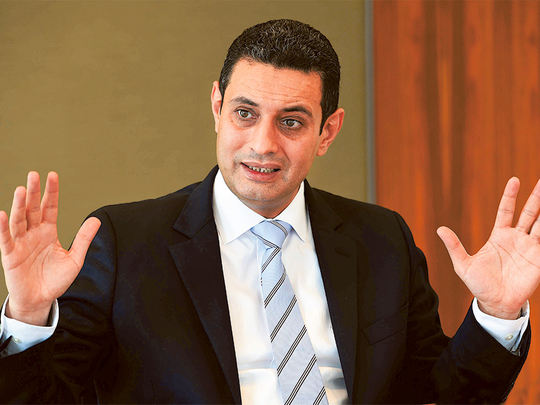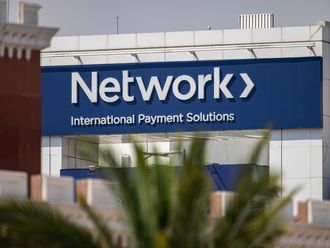
Dubai: The Libyan Investment Authority (LIA) is drafting a proposal to the United States and European Union seeking management of its assets despite challenges from its former chairman who says that the country is too unstable for such a move.
The LIA’s international assets, which constitute a third of the $67 billion (Dh245.9 billion) sovereign wealth fund, have been frozen since 2011 when the country overthrew dictator Muammar Gaddafi. The Libyan government had an option to unfreeze the assets a year later, however, it decided to stick with the status quo.
The LIA is now proposing that the assets remain frozen but that it be allowed to be in the “driving seat” so that it can manage them “for the benefit of the Libyan people,” Hassan Ahmad Bouhadi, Chairman of the LIA Board, told Gulf News in Dubai on Tuesday.
“We would not divest, we would not liquidate but we need to manage the assets,” he said, adding that assets need to be managed to ensure they are protected from market fluctuations.
But the LIA’s former chair, Abdul Majeed Breish, told reporters in London last week now is not the time to touch them.
“Not until we have total stability,” Breish said, according to Reuters
But Bouhadi dismissed his predecessor’s comments as a “mere distraction.”
“The Libyan people broke the chains politically [when they overthrew Gaddafi] but they have not broken the chains economically,” he said.
Breish was appointed chair in 2013 but later stepped down when he was investigated under a Libyan law designed to keep Gaddafi associates from holding public office. Breish maintains that he is the rightful chair of the fund and successfully challenged the investigation in a Libyan court. However, Bouhadi was appointed last October by the LIA’s board of trustees, which is backed by the international recognised Libyan Tobruk government.
“As far as the LIA is concerned, he [Breish] doesn’t have a place,” Bouhadi said.
“There are people trying to undermine us because they do resist change. These people have been there from the Gaddafi regime. They would like to continue, they cannot learn new tricks anymore,” he said.
While Bouhadi and the LIA face Breish on one front, they also engaged in two multibillion lawsuits against two of the world’s biggest banks, Goldman Sachs and Societe Generale, over allegations of claims of billions of mismanaged investments by the foreign banks.
“Somebody has to answer for these cases,” Bouhadi said.
The LIA was set up in 2006 to invest and diversify the country’s public finances in an economy that is 97 per cent dependent on oil revenues. A blueprint has been drafted to restructure the LIA that includes establishing two other funds in addition to the current future fund, increased oversight and transparency and to control 15 to 20 per cent of the country’s oil revenue for investments, Bouhadi said.
The two funds are a stabilisation fund that would inject capital in the national budget when oil prices fall, causing a deficit, the other is a domestic development focused fund.
The future generation fund includes the frozen assets and shares in major international corporations such as GE and Italy’s Finmeccanica.
As a shareholder, the LIA is hopeful that is can direct major corporations to invest when stability returns to Libya.
The LIA believes it can provide leverage to foreign investors to become partners in investing in Libya. It also wants to be involved in public private partnerships (PPPs) to rebuild much of the country’s destroyed infrastructure such as ports, airports and highways.
Bouhadi said the LIA needs to fund growth in the country and encourage people to re-enter the private sector after decades of public sector dependency under the Gaddafi regime. He said this can be achieved “by promoting and supporting small and medium sized enterprises” and is backed by 10 billion Libyan dinars of LIA cash in the Central Bank.
But the LIA has not received any fresh capital since before it was set up and has instead been left managing the capital. Bouhadi said he is hoping for a unity government to be established in a couple of weeks, which could see the LIA get into the “second and third gear of growth.”
But until then the LIA is in a “protect and maintain” mode of its assets.
“After the stability our priorities will change,” Bouhadi said.
Asked about the contribution of oil revenues to the fund given that the country’s oil output has fallen to around 430,000 barrels per day, less than a third of the country’s 1.5 million barrels per day capacity, Bouhadi said the country could “absolutely” return to full oil output if a unity government is formed.
The LIA is also assessing whether it will open a office in Dubai or Bahrain, Bouhadi said, which would be in addition to its London and Malta offices.











